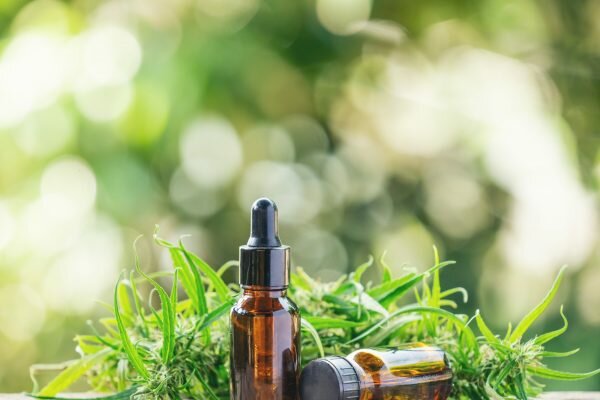Loneliness And Addiction. What We Need To Know

Humans are naturally social creatures. Since our birth, we feel the need to interact with others. But everyone gets lonely sometimes. According to the General Social Survey (GSS), the number of Americans who say they have no one to discuss important matters with nearly tripled in recent decades. American Osteopathic Association report that nearly three-quarters (72%) of Americans feel lonely.
This “loneliness epidemic” contributes to the nation’s health problems. Many people find it hard to cope with the feelings of worthlessness and emptiness. With time, it becomes difficult to find joy and happiness in life. Unfortunately, some lonely people start to look for positive emotions in the wrong activities, such as drinking alcohol and taking drugs. As a result, loneliness and substance use feed each other, creating a vicious cycle which is really hard to break.
What Is Loneliness?
While loneliness is commonly defined as a state of solitude or being alone, experts say that it’s rather a state of mind. Those who lack productive social contacts may feel misunderstood and unwanted. That’s why the existence of drug and alcohol hotlines https://addictionresource.com/addiction-and-rehab-hotlines/ is beneficial for people who want to talk to someone about their problems.
Loneliness is a kind of social pain. The desire to communicate is similar to our physical needs for food or sleep. And when it’s not satisfied, the same part of the brain that is responsible for physical pain is activated.
What Are the Effects of Being Lonely?
Social isolation is often an underlying cause of many health conditions, both physical and mental. Lonely people don’t manage stress effectively. Higher levels of loneliness are associated with more depressive symptoms.
Isolation increases the risk of heart disease. It’s also linked to different kinds of eating disorders, such as anorexia, bulimia, and binge eating disorder. It’s called a risk factor for premature mortality. And it’s one of the factors that drive people to unhealthy behaviors, like smoking, drug use, and excessive drinking.
Why Is Loneliness Associated with Substance Abuse?
The mere fact that addiction hotline anonymous gets so many calls demonstrates that people that have problems with alcohol and drugs often don’t know where to seek help.
Some start drinking alcohol or smoke weed to cope with the feeling of not belonging and lack of companionship. Others do that to increase their confidence in social situations, to make it easier to fit in.
Research shows a direct relationship between the feeling of loneliness and substance use. It was found that adolescents who reported feeling lonely, crying a lot, or being tense, were more likely than others to use drugs. Studies also suggest that loneliness plays significant roles at all stages in the course of alcoholism: as a contributing and maintaining factor in the growth of abuse and as an obstacle in attempts to quit.
Also, current data shows that high levels of chronic social loneliness contribute to substance abuse more than personality, anxiety, and depression.
The reason why lonely people sometimes become victims of alcohol and drugs can be simply explained. Loneliness is one of the most uncomfortable states for human beings. So, they grasp every opportunity to avoid this state, even if these opportunities are harmful.
Why Do Addicts Isolate Themselves?
Addiction is an incredibly lonely disease. Though we often stereotype alcoholics or drug takers as people who party hard while being sociable, friendly, and functional, there’re depressive addicts who drink or take substances alone. And though most addicts fall somewhere between the two extremes, they still experience the feeling of isolation.
In reality, substances only aggravate loneliness in the long run. A developing addiction leads to social withdrawal and emotional distance. As the disease progresses, it’s common for addicts to break ties, lose the support of family and friends, and fall even into greater isolation.
How to Treat Addiction and Loneliness?
Addiction is a disease that changes the function and structure of the brain. Like other chronic illnesses, it’s treatable, and it requires medical help. To come out of addiction alone is challenging if not impossible. Even if a person reaches some short-term sobriety, the risk of falling back is very high due to the unsolved issue of loneliness.
The best solution is to get professional medical help. Addiction hotline can help you outline what to do. The calls to hotlines are free and confidential. Operators will encourage you and provide useful information and necessary contacts for further help, including rehab numbers.
How to Choose the Right Rehab for Your Specific Needs?
Isolation stunts the process of recovery from substance use disorder. That’s why rehabilitation addresses not only addiction but a state of loneliness as well. Social connection is one of the strongest healing forces. When a person develops a strong support network, recovery becomes faster and more progressive.
How do rehabs treat both loneliness and addiction? Some treatment programs offer family or couple therapy. These sessions help a person and their loved ones fix their relationship and learn to support each other. Use a national addiction hotline to find out what centers offer these types of therapy.
Since isolation can destructively affect a person’s self-worth and self-esteem, individual therapy sessions are aimed at cultivating one’s self-love, self-confidence, and better methods of self-care.
Of course, successful recovery mainly depends on the patient’s response. If you’ve entered an addiction treatment program, it’s vital to stay interested and involved. This can be shown through the next steps:
- Creating a strong support system. Trust medical staff and accept their care. Spend quality time with your family, friends, and loved ones.
- Attending all recovery meetings and periodic appointments with doctors.
- Signing up for educational classes, training activities and group work available at your center. That can put you in contact with others and help you discover new interests and develop useful skills.
- Remain in treatment for the recommended amount of time. According to the National Institute on Drug Abuse (NIDA), completing a treatment program is associated with higher rates of long-term abstinence.
Remember, that creating positive relationships will have a significant impact on your recovery. It will help you to cope with lonely feelings without turning to alcohol or drugs. So, find a treatment program that is adjusted to fit your needs, and be open to positive changes.














